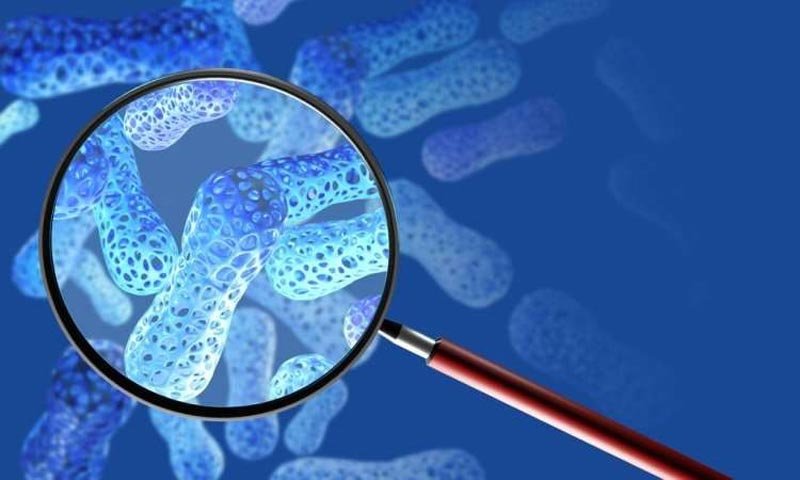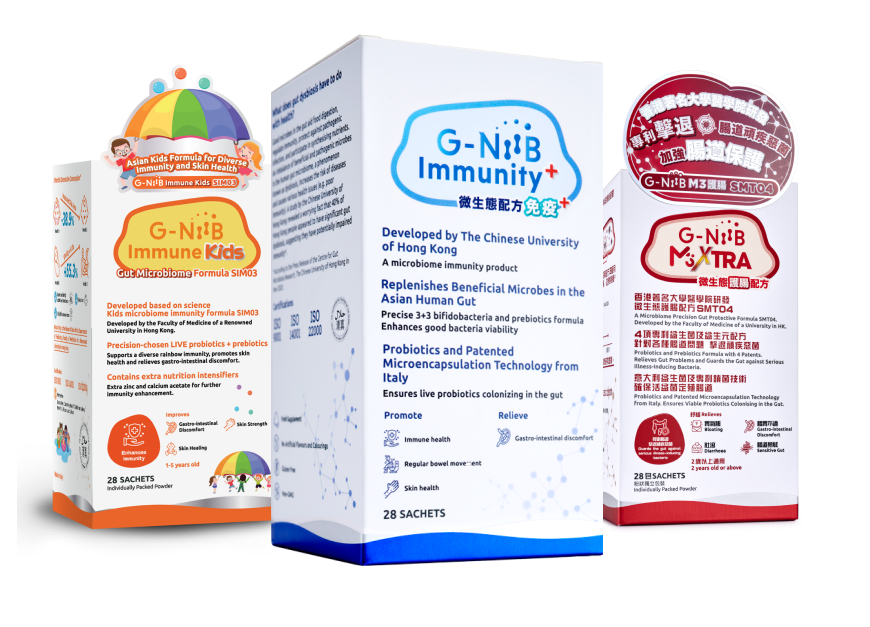Probiotics 101

What Are Probiotics?
Probiotics refer to live microorganisms that confer health benefits to the host—usually humans—when consumed in adequate amounts[1]. These beneficial microbes play pivotal roles in supporting immune and digestive function, skin health, cognition, mood, and much more.
In the realm of therapeutic interventions, probiotics have shown promise in addressing issues like irritable bowel syndrome, antibiotic-associated diarrhoea, and certain allergies. As science delves deeper into the intricacies of the human microbiome, the potential of probiotics in disease prevention, treatment, and overall health enhancement becomes increasingly evident.
What's the Difference Between Probiotics and Prebiotics?
Probiotics and prebiotics play distinct but complementary roles in promoting gut health. Probiotics are live bacteria that actively replenish and rejuvenate the intestinal flora by increasing the population of beneficial microbes in the gut. This process supports a robust immune system and hinders the growth of harmful bacteria.
In contrast, prebiotics are non-digestible carbohydrates, mainly found in dietary fiber, that serve as a source of nourishment for the live probiotics. They fuel the growth and colonization of these beneficial bacteria within the gut.
The gut bacteria, collectively referred to as the gut flora or gut microbiota, perform many important functions in the body. Eating balanced amounts of both probiotics and prebiotics can help ensure that we have the right balance of these bacteria to keep our gut microbiota healthy, which is crucial for overall well-being.
Probiotics introduce beneficial live bacteria, while prebiotics provide the necessary sustenance for these microbes to thrive.


Who Needs Probiotics?
We should all start taking probiotics as a dietary supplement to boost immunity and maintain good gut health. Children can start as young as 1 year old. Pregnant mothers are encouraged to take them too.
It is especially important for those with the following conditions to consume probiotics regularly in order to nurse the gut back to its optimal state:
- Skin conditions
- Gastrointestinal issues
- Poor sleep quality and mood
- Weak immune system
Benefits of Probiotics
Probiotics play a significant role in supporting health primarily due to their influence on the gut microbiome, which is the diverse community of microorganisms that reside in the digestive tract.
The gut microbiome has a profound impact on various aspects of health, and probiotics contribute to maintaining a balanced and diverse microbial ecosystem. Here's how probiotics are connected to health:

1. Microbiome Balance
Probiotics are beneficial bacteria that can help restore and maintain a healthy balance of microorganisms in the gut. Maintaining this equilibrium is vital for good digestion, taking in nutrients, and ensuring our gut works as it should.

2. Digestive Health
Probiotics can aid in breaking down food and absorbing nutrients. They also help produce certain enzymes that contribute to the digestion of complex carbohydrates and fibers that might be difficult to digest otherwise.

3. Immune System Support
Much of our body's defense mechanism is rooted in the gut. Probiotics interact with immune cells and help regulate the immune response, enhancing the body's ability to fight off infections and diseases.

4. Mental Health and Mood
There's a two-way link, called the gut-brain axis, that connects our digestive system with our brain[2]. Probiotics may influence this axis, potentially impacting mood, anxiety, and stress responses.

5. Nutrient Synthesis
Some probiotics have the ability to synthesize certain vitamins and nutrients, such as B vitamins and vitamin K[3]. This can contribute to overall nutrient availability in the body.

6. Kesehatan Kulit
The gut-skin axis suggests that imbalances in the gut microbiome could contribute to skin conditions[4]. Probiotics might play a role in promoting healthy skin by influencing the gut-skin connection.

7. Alergi
Early exposure to diverse gut bacteria, including probiotics, might play a role in preventing allergies by supporting the development of a balanced immune system[5].

Probiotics Made For Asians
Generally, our diets, choices of food are different from what people consume in Western countries. For instance, a Western diet with oats, salads, milk, etc will most likely differ from that of the Asians with rice, noodles, curries, stir-fry dishes, etc. Any ethnic group in Singapore will most likely consume similar dishes.
The food we eat affects the diversity of our gut bacteria. Hence, the good bacteria required for gut dysbiosis restoration differs from diet to diet. A microbiome formula created for westerners' gut microbiome may not replenish the need of an Asian gut in which a precision gut microbiome formula for Asians may achieve.
Our probiotics and prebiotics formula is developed based on 10-year research on Asian gut microbiomes using metagenomics and AI machine learning technology. The result of the research precisely identified the live good bacteria (probiotics) and prebiotics that are most suitable for the gut microbiome of Asians.
When Should You Start Taking Probiotics
Best to go for one sachet daily, and there is really no such thing as starting too early or too late. Whether you are taking it for strong immunity or to improve certain conditions, it is suitable for all age groups starting from 1 year old, and for pregnant and breastfeeding women too.

4 Criteria for Selecting An Effective Probiotics

1. CFU Count
Does the number of live bacteria per serving reflect both quality and quantity without misleading by just being high?

2. Species and Strain
Is the probiotic precisely identified down to its strain, ensuring you're getting the specific health benefits associated with it?

3. Clinical Validation
Has the probiotic been clinically tested to ensure its efficacy and safety for consumers?

4. Survivability and viability
Is there a mechanism in place to ensure the bacteria remain alive and potent from production to consumption and effectively work in the gut once taken?

Where to Get Your Probiotics?
If you have to get your fix of probiotics, always look for a trusted brand which has done in-depth research and clinical trials.
G-NiiB's formulas come with freeze-dried live bacteria and are microencapsulated with a patent technology from Italy. This technology protects the live bacteria through the acidic gastric acid and the alkaline bile juice to effectively reach the gut for colonization. Colonization of the gut would promote the sustainability of a health gut microbiome.
G-NiiB's formulas are non-GMO, gluten-free, halal certified, and formulated with no artificial flavours and colourings.
Formulated with the goal of better recovery response for diseases and chronic conditions such as difficulty in sleeping, fatigue, which explains user survey results that more than 95% of G-NiiB users would continue to use after their first consumption.
